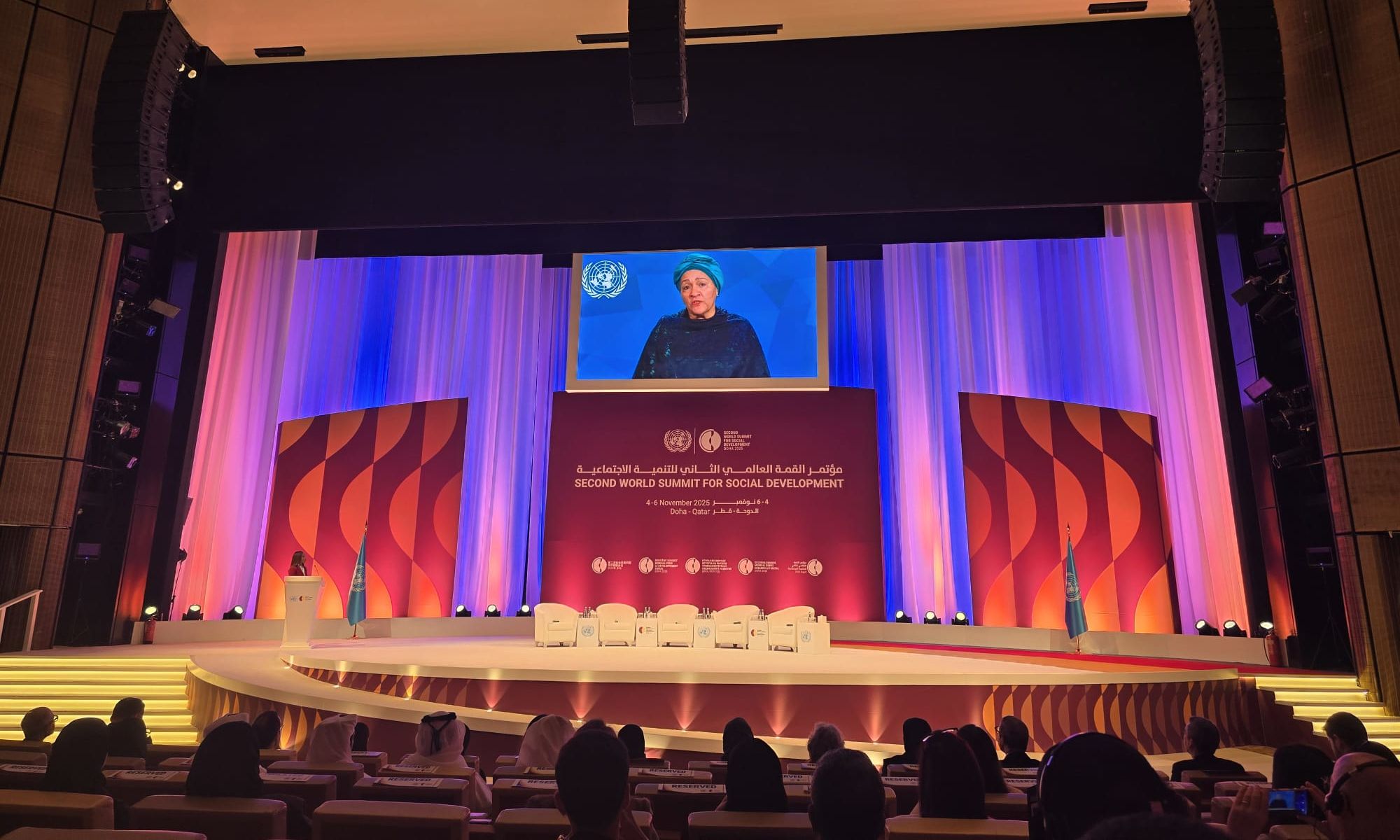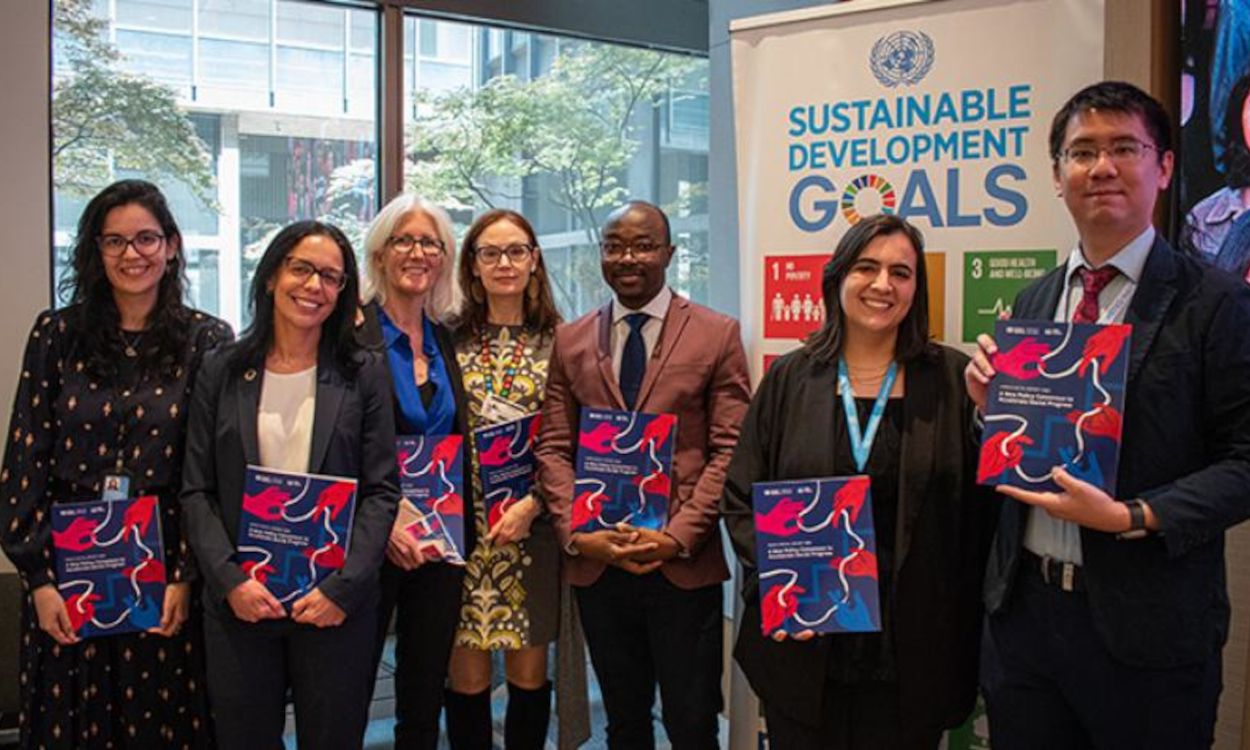The Social and Solidarity Economy: Alternatives in the Making

by Eunices Pineda, ICSW
The concept of the social and solidarity economy (SSE) has roots in various movements and initiatives across different countries and regions. It emerged as a response to the limitations of traditional economic models and the need for alternative approaches that prioritize social and environmental objectives. It is challenging to attribute the introduction of SSE to a single individual; rather, it has been shaped by a broad range of actors, including grassroots organizations, researchers, policymakers, and social movements. The contributions of these individuals and collective efforts have helped introduce and advance the understanding and recognition of the social and solidarity economy as an alternative economic model focused on social and environmental objectives alongside economic sustainability. Increasingly used as an umbrella concept, SSE refers to the production and exchange of goods and services by a broad range of organizations and enterprises that are guided by the principles and practices of cooperation, solidarity, ethics and democratic self-management, and can take the form of cooperatives, social enterprises, self-help groups or community associations, among others.
The United Nations, through various agencies such as the International Labour Organization (ILO) and the United Nations Research Institute for Social Development (UNRISD), has contributed to the development and promotion of SSE. They have highlighted the potential of SSE in addressing social and environmental challenges and advancing the Sustainable Development Goals.
For example, the UNRISD advocates for the SSE approach due to its potential to contribute to inclusive and sustainable development, poverty reduction, social inclusion, local development, democratization, participation, gender equality, innovation, and policy relevance. UNRISD aims to generate policy-relevant research and knowledge on social development. By advocating for the SSE approach, UNRISD contributes to the understanding and recognition of SSE in policy circles. It promotes evidence-based policymaking and fosters dialogue and collaboration among researchers, policymakers, and practitioners in advancing SSE. Support for SSE stems from its belief in the transformative potential of SSE as an alternative economic model that prioritizes social objectives and enhances human well-being.
Many civil society organizations from around the world have been active in this area. For example, the International Forum on social economy created in 2004 is a network of SSE actors regularly convening international conferences. The Forum includes organisations and enterprises from 4 continents that are active in this field. Its objective is to promote the Social and Solidarity Economy at a global level. Currently, SSE International Forum has 35 members in 14 different countries. SSE International Forum held 10 meetings, conceived as an alternative to the Davos Economic Forum.
At its 66th plenary meeting on April 18, 2023, the United Nations General Assembly adopted the resolution “Promoting the Social and Solidarity Economy for Sustainable Development” (A/77/L.60). The resolution provides an official definition for the Social and Solidarity Economy and acknowledges that it can contribute to the achievement and localization of the Sustainable Development Goals prioritizing individuals and social initiatives over capital.
Recalling several resolutions on sustainable development, financing for development, and the role of cooperatives and social enterprises, the General Assembly acknowledges that social entrepreneurship, including cooperatives and social enterprises, can reduce poverty and promote social transformation. Economic and social inequities have been affected by the COVID-19 pandemic, climate change impacts, and geopolitical tensions, calling stakeholders and entities to generate a stronger response and action. The General Assembly also recognizes the role of social and solidarity economy to achieve Sustainable Development Goals.
In the Secretary-General's report, it was highlighted the need to promote Sustainable Development Goals and climate action as part of business initiatives including social and solidarity economy. Businesses are called to align their efforts with sustainable development goals and redesign obtainable measures. In this case, social and solidarity economies may contribute to these measures due to their ability to promote decent work, inclusive and sustainable economies, international labor standards, and social innovation. These entities are recognized for their role in promoting employment opportunities, empowering marginalized communities, and preserving traditional knowledge and culture.
On the other hand, social and solidarity economy plays an essential role for social inclusion and diversity. Social dialogue and the protection of all labor rights is seen as vital. The General Assembly resolution proposed some measures to ensure social cohesion and a well- functioning and productive economy. Specifically, it calls for new strategies aimed at developing specific legal frameworks, recognizing the impact of the SSE in national statistics, offering fiscal and public procurement incentives, integrating social and solidarity economy into education curricula and capacity-building initiatives, enhancing entrepreneurship and business support, facilitating financial services and funding for social and solidarity economy entities, and encouraging the involvement of actors from the social and solidarity economy in policymaking processes. The resolution also aims to provide support to countries upon request to identify, formulate, implement, and assess policy measures and frameworks that promote a social and solidarity economy as a tool to achieve the Sustainable Development Goals. The efforts of the United Nations Inter-Agency Task Force on Social and Solidarity Economy are also recognized.
Globally, these alternative forms of production, exchange and consumption are growing in response to social, economic and environmental crises. Characterized by voluntary cooperation and mutual aid, democratic and/or participatory governance, these organizations embrace autonomy and independence. Working across economic sectors, social and solidarity economy entities underline the primacy of people and social purpose over capital in the distribution and use of profits and assets while promoting sustainability.





